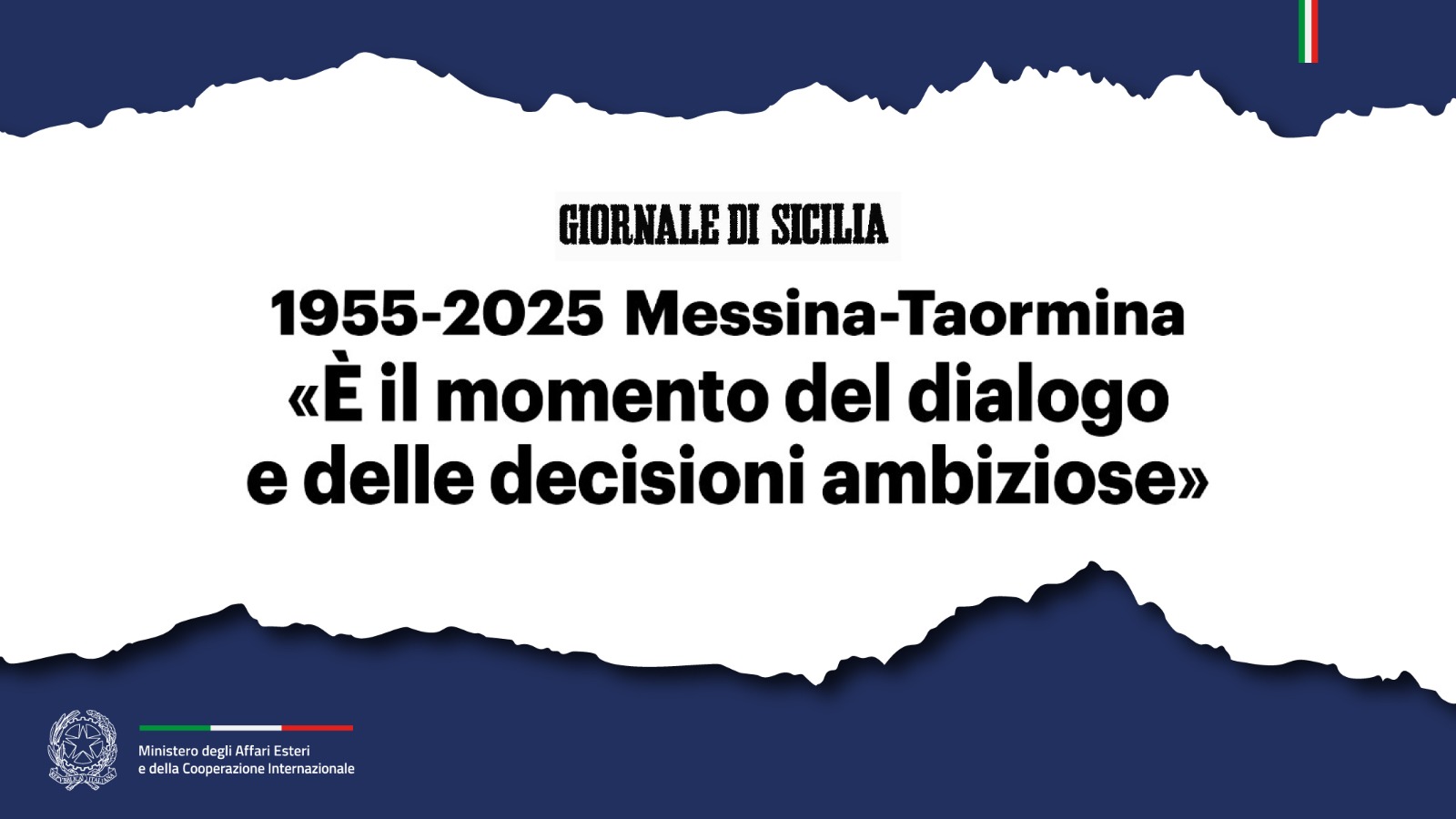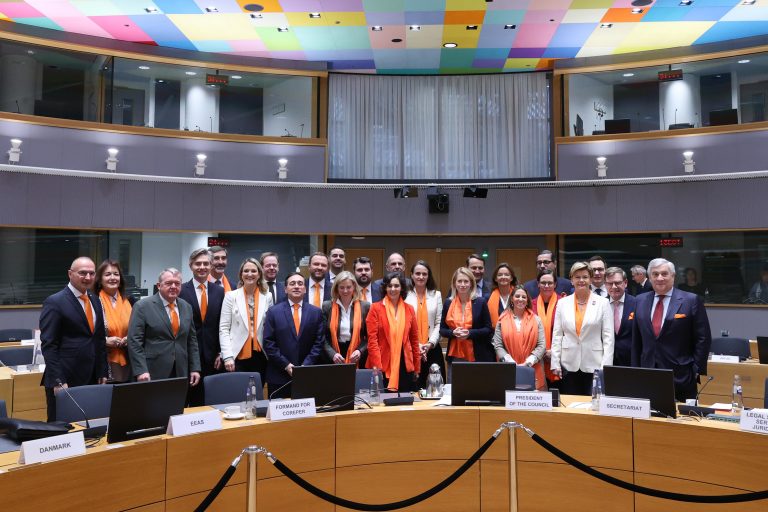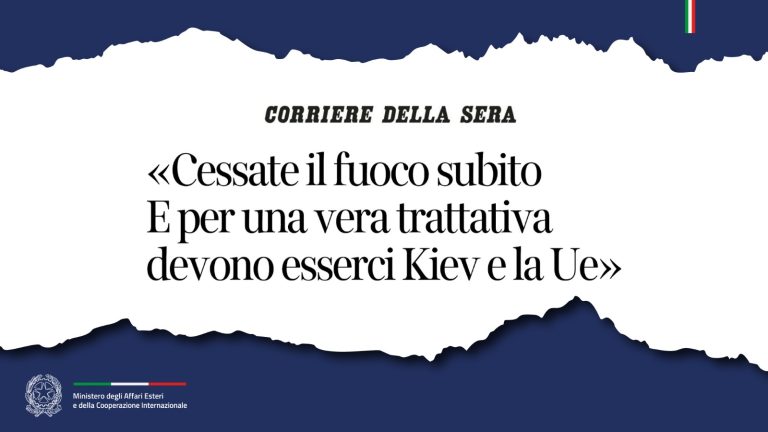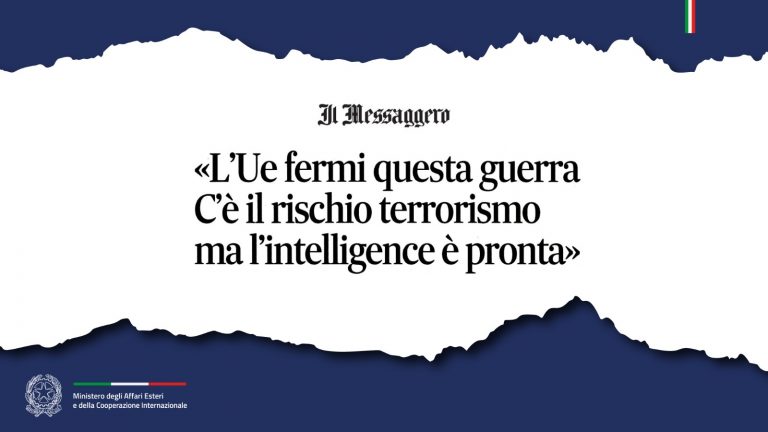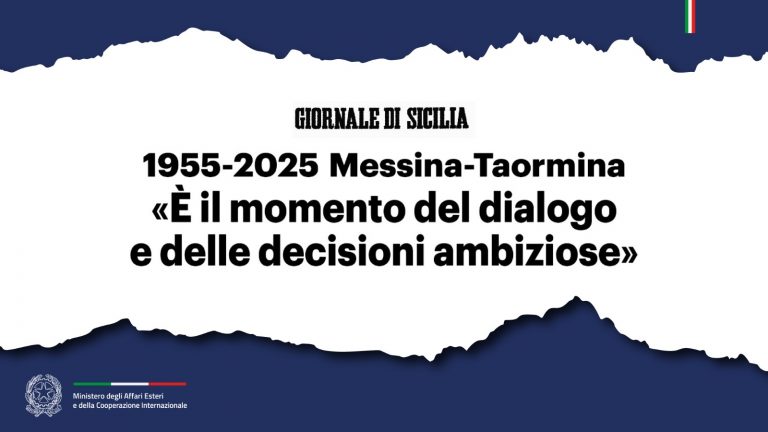President Tajani, the “Declaration” whose anniversary is being commemorated is one of the foundational acts of a united Europe as we know it. Over these 70 years, great strides have been made, yet that “spirit of Messina”—which was crucial in overcoming mistrust and division among the founding countries—is still frequently invoked. In recent months, during times of difficulty for Europe, do you still feel that communal spirit, or do national calculations and self-interest prevail?
“The current geopolitical context places the European Union before existential challenges—ongoing conflicts, terrorism, growing migration pressures, protectionism, and social-economic inequalities. Today, as seventy years ago, we have a duty to act collectively, in the spirit of our Union’s founding fathers. While national interests certainly play a role in European negotiations, it would be short-sighted to focus solely on them. We cannot take for granted a European project that, in a few decades, has transformed a group of warring states into a union with common institutions and strong shared values. The European Union is a beacon of peace, freedom, democracy, and growth, founded on human rights and the rule of law—an economic heavyweight boasting unparalleled social protection and welfare systems. In a society demanding immediate answers, we must show foresight by making ambitious decisions, while maintaining a pragmatic approach. That is precisely the “spirit of Messina” we intend to recall on 18 and 19 June”.
The Messina meeting takes place in a city which, for Italy, is truly a gateway to the Mediterranean—currently receiving troubling signals and images. Should we be concerned for our national security as well?
“As I stated on 14 June before the joint Chamber and Senate Committees, I have personally monitored developments between Israel and Iran from the Italian Foreign Ministry’s Crisis Unit—to assess the impact and security implications for Italians in the region. I remain in constant contact with our embassies in Tehran and Tel Aviv, and the Consulate General in Jerusalem. There are currently around 50,000 Italians across the Middle East. The largest community is in Israel, numbering approximately 20,000, while some 500 reside in Iran. At present, no critical situations have been reported. In addition, we have military personnel deployed throughout the area—from Iraq to Lebanon, from the Gulf to the Sinai. Our Embassies are in communication with all Italian nationals who have requested assistance in returning to Italy. All are in good health and are receiving every possible form of assistance, taking into account the disruption to air traffic in the region. As I stated in Parliament, a prolonged military confrontation between Israel and Iran would have far-reaching implications—not only for regional security but also for economic, energy, humanitarian, and migration issues. That is why the Italian Government is at the forefront of efforts to pursue de-escalation. Now more than ever, it is time to rekindle dialogue and negotiation. We must prevent further humanitarian disasters, shattered economies, and regional instability. It is time to stop, negotiate, and let diplomacy—not weapons—speak. Italy stands ready to play its part at every level. We owe this to our citizens, to our troops engaged in peacekeeping in the region, and to our friends in the Middle East”.
Returning to Messina 1955: thereafter, European unification progressed primarily in economic and trade matters, the very next step being the formation of the ECSC. What, in your view, have been the most significant recent European choices in political, financial, legal, and inevitably military unification?
“In recent years, we have witnessed important advances in European integration—above all in economic and financial domains. Take, for example, our response to the pandemic: through Next Generation EU we achieved collective debt mutualisation—previously unthinkable—demonstrating solidarity among Member States. European collaboration has also shaped the Stability and Growth Pact reform, seeking to strike a more political balance between fiscal discipline and growth, adapting EU budgetary rules to a changing world. In the legal sphere, ongoing efforts aim to explore proposals to enhance Union efficiency. Finally, in defence, we are committed to strengthening coordination between NATO and the European Union by consolidating NATO’s European pillar. We discussed this recently, on 12 June in Rome, with the Weimar Plus countries and NATO’s Secretary General Mark Rutte, ahead of the upcoming Hague Summit. We must stand united to face today’s challenges and safeguard our security—especially in light of recent Middle East developments and the escalation between Israel and Iran.
Messina, Sicily, and Southern Italy bore direct witness to a defining moment in Europe’s history. Since then, the Union has devoted significant attention and resources to these areas, including a large share of Next Generation EU funds. What is your assessment of the South’s ability to leverage these resources—given the ongoing scepticism both in Italy and elsewhere in the EU?
“I believe the South has embraced the historic opportunity presented by Next Generation EU. Italy’s National Recovery and Resilience Plan (PNRR) allocated a substantial portion of its resources to Southern regions to support projects delivering tangible added value. For instance, the EUR 1.2 billion “Southern Quota”—40 % managed by Italian Foreign Ministry—is earmarked for businesses in the South. With these funds we have accelerated the digital and ecological transition of companies, boosting their competitiveness on global markets with positive spill‑overs for local economies and communities. There is also the PNRR “Tourism of Roots” project, dedicated to promoting rural areas, small towns, and villages abroad. Southern Italy, long subject to emigration, stands to gain from this initiative: Italian Foreign Ministry, together with local authorities, offers eighty million Italians and their descendants worldwide the chance to rediscover their ancestral homelands—simultaneously stimulating those local economies. Furthermore, MAECI will manage, for the first time, European resources from the Cohesion and Development Fund. These will be directed to central and southern regions to fund tourism and sports initiatives, contributing to economic and social growth in the Mezzogiorno. We are already witnessing the positive impact of these investments in regional revitalisation and economic dynamism. In many southern communities, the PNRR has already translated into growth, new businesses, and employment. This model must be showcased across Europe; otherwise we will never overcome inaccurate narratives about us”.

